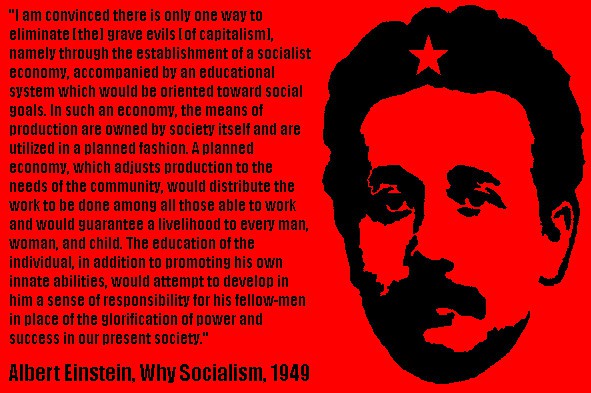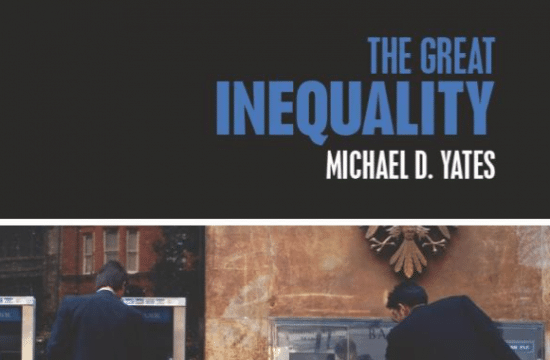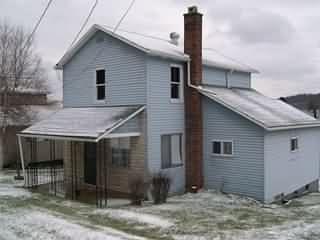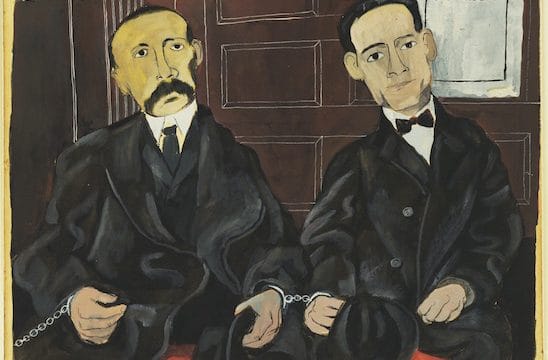 The orchards in Capitol Reef National Park in south central Utah are located in what used to be the tiny village of Fruita. The setting is extraordinary. High rock cliffs, formed when the earth erupted and folded back on itself millions of years ago, surround a small, lush valley of green, fed by the waters of the Fremont River and Sulphur Creek. A tiny band of Mormon pioneers settled the area in the 1880s and, using irrigation paths first built by ancient indigenous peoples, planted fruit trees to take advantage of the relatively long growing season. Over the next few decades, the settlers, never more than a dozen or so families, “planted thousands of trees bearing Jonathan, Rome Beauty, Ben Davis, Red Astrachan, Twenty-Ounce Pippin and Yellow Transparent apples, Morpark apricots, Elberta peaches, Bartlett pears, Fellenburg plums, and the Potawatomi plum. Settlers also planted English and black walnuts and almonds. Grape arbors appeared later.”
The orchards in Capitol Reef National Park in south central Utah are located in what used to be the tiny village of Fruita. The setting is extraordinary. High rock cliffs, formed when the earth erupted and folded back on itself millions of years ago, surround a small, lush valley of green, fed by the waters of the Fremont River and Sulphur Creek. A tiny band of Mormon pioneers settled the area in the 1880s and, using irrigation paths first built by ancient indigenous peoples, planted fruit trees to take advantage of the relatively long growing season. Over the next few decades, the settlers, never more than a dozen or so families, “planted thousands of trees bearing Jonathan, Rome Beauty, Ben Davis, Red Astrachan, Twenty-Ounce Pippin and Yellow Transparent apples, Morpark apricots, Elberta peaches, Bartlett pears, Fellenburg plums, and the Potawatomi plum. Settlers also planted English and black walnuts and almonds. Grape arbors appeared later.”
Like most rural folk, the men and women of Fruita produced for their own use, bartered their surplus for certain skilled work, and sold some of it to buy what they could not produce. Much labor was collective, especially that which benefitted the entire community, like building the little school where children learned their ABCs, and adults and kids alike participated in dances and other social events.
The Mormon religion was probably a strong bonding agent for the residents of Fruita, although there was never a Mormon Temple there and alcohol was more tolerated than a strict adherence to the faith would have allowed. Mormonism had strong egalitarian and communitarian tendencies, and no doubt these were evident in Fruita, as they were in other small rural settlements established in the kingdom of Brigham Young. Not too far away, south of Bryce Canyon National Park on what is now U.S. Highway 89, some of Young’s more fervent disciples followed his command to colonize new territory and renew the fundamental precepts of the church and established the remarkable community at Orderville. For more than a dozen years, Orderville was an example of a communist society, with communal property and labor. Here is how Wallace Stegner described it in his masterful Mormon Country:
[Orderville] eliminated completely the fear of poverty and want; it furnished to all its members the amplitude of food, shelter, and clothing whose possession, according to some ways of thinking, ought to remove every source of human quarrelsomeness. It managed to bring its several hundred members into a communion of goods, labor, religion, and recreation such as the world has seen only in a few places and for very short times, and to do it without loss of gaiety or good nature. The life was strenuous, but it was also wholesome; it brought content. The number of people from that town who lived past eighty is good statistical evidence that heaven-on-earth does not breed the will to die.
By the time Fruita was up and running, Orderville had already passed into history. An island of communism in a sea of capitalism never works for long. Even when the Mormons were forced to flee Nauvoo, Illinois after the murder of Joseph Smith in1844, they were already stratified by wealth. Some who made the incredible trek across the plains and mountains to the Great Salt Lake went with many wagons and much livestock, while others had to strap themselves to handcarts and walk. As they developed their new homeland, some had better material starting points, and as always happens in capitalism, those who had more to begin with were able to build upon what they had and accumulate still more wealth. Poor folks went to Fruita and Orderville, but wealthier Saints stayed in Salt Lake City or St. George and ran the affairs of state and religion, which in Mormonism were one and the same thing. Mormon luminaries became the largest landholders, the biggest ranchers, the owners of everything from silver mines to newspapers, the state and national politicians, the movers and shakers of the Mormon nation. The capitalist drive to expand and accumulate capital found a ready home in Utah. And not just in the Beehive State. Brigham Young was an imperialist, and he sent colonists to many parts of the west. The oldest town in Nevada, Genoa, was an early Mormon enclave, and Mormon settlements were founded in Idaho, Montana, Arizona, and California, not to mention Mexico and Canada. It wasn’t long before the communitarian spirit of the early church gave way to a thoroughgoing authoritarian paternalism, with charity for the poor in return for their strict obedience to Church leaders, who were also the economic elite.
The most famous Mormon in the United States today is Mitt Romney, the first of his faith with a real chance to become president. Much has been made of Romney’s religion. Horror stories abound about Mormonism’s dim view of women and racial minorities, of the ridiculousness of some of its core beliefs, of the polygamy practiced by Romney’s ancestors. There is some truth to these. However, more important than Romney’s faith, which by all accounts is central to his life, is the fact that he is Mormon economic royalty, descended from the most important leaders of the church. He can trace his lineage back at least to Parley Pratt, one of Brigham Young’s trusted lieutenants, and his family is related to that of Joseph Smith himself. These prominent Mormons made their mark not just in the faith but in good old-fashioned business enterprise. Mitt Romney grew up in both religious and economic privilege. The two are so closely intertwined that it hardly makes any sense to separate them.
So if Romney becomes president, will his faith matter? We can be certain that he won’t embrace the communal ethic of Fruita and Orderville. Like George Bush, he’ll favor religious-based charity, and like Obama and Clinton, he’ll want to keep social welfare spending to a minimum and will no doubt favor cuts in and means-testing of Social Security and Medicare.
Mormonism, like all of the great “father religions” (Christianity, Judaism, Islam), has a strong exclusionary bias. Non-Mormons are called “gentiles.” Would a Romney presidency treat non-Mormons like the Jewish state of Israel treats Palestinians or like the Islamic state of Saudi Arabia treats those who are not Sunni Muslims? I don’t see how this would be possible. Whatever its faults, the United States is not Israel or Saudi Arabia. And blacks, Hispanics, and American Indians are unlikely to suffer any more under Romney than they have under Obama.
The early Mormons committed their share of atrocities, against “gentiles” in the infamous Mountain Meadow Massacre and Indians, whose children they often dragooned into special schools and adopted out to Mormon families. But their treatment of “others” pales in comparison to the treatment of slaves by southern planters or Indians by, say, Andrew Jackson.
We keep hearing that Romney will appoint conservatives to the Supreme Court, but this won’t have any more to with his religion than did George Bush’s “born again” Christianity. Will a Romney Supreme Court overturn Roe v. Wade? If the horrid reactionaries who have held the Oval Office over the past nearly forty years haven’t managed this, how will Romney? Will Romney lead us into more wars? Probably, but war is a way of life for the United States, no matter who is president. Will Romney be hostile to organized labor? Yes, but so has Obama. Will Romney’s policies wreak havoc on the environment? Yes, but so have Obama’s.
Romney will be keen on whatever capitalism demands of him, just like all presidents. His main commitment will be toward those to whom every president swears allegiance, if not in public (as Romney was foolish enough to do), then by daily practice—the “1%.” Perhaps the Mormon section of the economic elite will get richer under Romney than anyone else, but so what? Politics always makes certain insiders richer.
Like all modern religions, Mormonism has had to make peace with capitalism. It did this long ago. No matter what religion the president professes, it is capitalism that rules his decisions and our lives. The spirit of Fruita and Orderville has long since died, just as the Christianity of the catacombs and the Judaism of the early Kibbutzim have perished. Faith seldom supercedes economic interests. The unionized Mormon miners in Boron, California, who a few years ago defeated mineral giant, Rio Tinto, in a bitter strike, never let any precepts of their religion diminish their class consciousness. And no Mormon precept about sharing one’s riches interfered with Mitt Romney’s avaricious and brutally capitalist behavior as head of Bain Capital.
Those who built communities in Fruita and Orderville would surely be appalled by Mitt Romney, though maybe even then, many of them saw the handwriting on the wall. Better to hope for happiness in the afterlife than imagine that it could be achieved in this ruthlessly unfair and money-driven world.








The social conservative drive to meld religion and the political State is relentless. What the rank and file religionists see is maybe something more akin to the old community of Fruita. What the ruling class sees is a way to justify their political power over the collective product of labour.